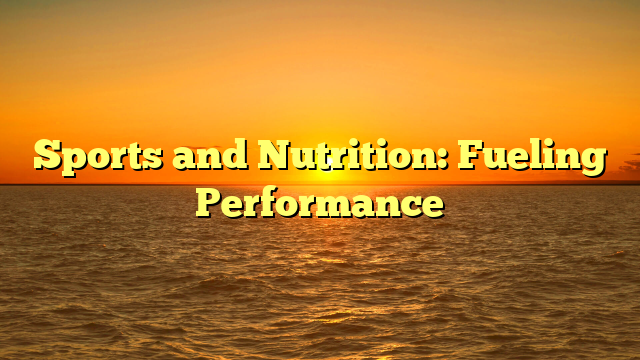Behind every great athlete is not only training and discipline but also proper nutrition. Sports and nutrition are inseparable, as the body’s ability to perform, recover, and excel depends heavily on what it is fed. Understanding the connection indo168 between diet and performance is key for athletes at every level.
Carbohydrates are the primary source of energy for athletes. Foods such as rice, pasta, and fruits provide the fuel necessary for high-intensity activities like sprinting or football. Proteins, on the other hand, are crucial for muscle repair and growth, making them essential for recovery after training. Sources such as lean meat, eggs, and legumes play an important role in athletic diets.
Hydration is equally vital. Dehydration can impair concentration, reduce endurance, and increase the risk of injury. Athletes are encouraged to drink water consistently and, in some cases, use sports drinks to replace electrolytes lost through sweat.
Nutrition also influences long-term health. Balanced diets rich in vitamins and minerals strengthen the immune system, reducing the risk of illness that could disrupt training schedules. Nutritional strategies tailored to individual needs ensure athletes can perform at their peak.
Importantly, sports nutrition is not limited to professionals. Amateur athletes and even casual exercisers benefit from understanding how food fuels their bodies. Proper eating habits improve energy levels, mood, and overall health, making sports participation more rewarding.
In conclusion, nutrition is the foundation of athletic success. It fuels performance, aids recovery, and supports long-term health. For athletes striving to reach their potential, what they eat is just as important as how they train.
